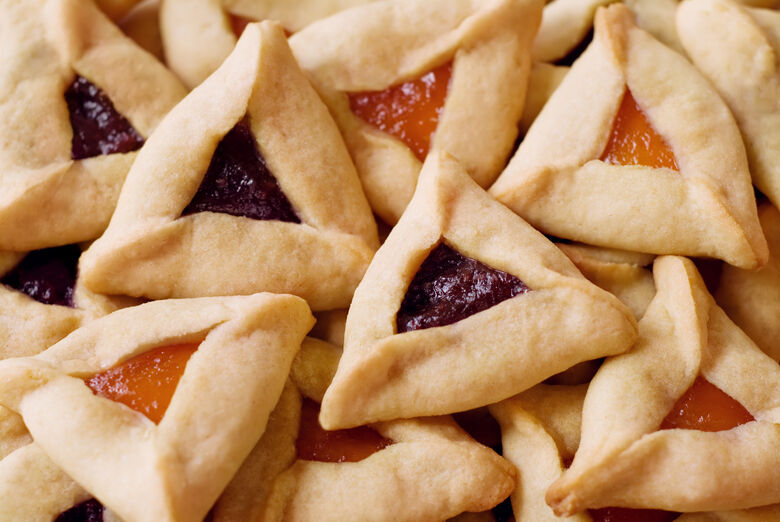If you’re seeing triangle-shaped cookies around the office or on social media, chances are someone is celebrating the Jewish holiday of Purim.
“Go with ‘Happy Purim,’ that will do,” said Aaron Miller of Washington Hebrew Congregation. “But if you want to work on your Hebrew, you can say ‘Chag,’ with a little of Jewish in the ‘ch’ — ‘Chag Purim Sameach.'”
Purim commemorates the survival of Jews, who were marked for death by their Persian rulers in the 5th century BCE. The story is told in the biblical Book of Esther, in which Haman, the chief minister to King Ahasuerus, convinced the king that Jews living under Persian rule were rebellious and should be annihilated.
However, when Queen Esther revealed to the king that she was Jewish, and that to kill all Jews would be a plot against killing the king’s wife, Haman was put to death. Esther’s cousin Mordechai was appointed prime minister, and he decreed Jews could defend themselves against anyone trying to harm them because of their religion.
“More than any other holiday, this holiday evokes joy,” said Rabbi Sender Geisinsky of Chabad Center of Bethesda.
“The message is when confronted by hate — genocidal hate — the Jewish people chose not to abandon their identity, their faith, and their connection with God. Rather, they doubled-down to celebrate it, be proud of it, and stand for who they were,” said Geisinsky.
Purim is not referenced in scripture like Rosh Hashana or Passover. However, like Hanukkah, Purim has been popularly celebrated through the generations.
Holiday traditions include giving out baskets of goodies to loved ones and neighbors. Jews have been baking triangle-shaped Hamantaschen with a fruit-filled center.

“Traditionally, there was prune or poppy seeds in there,” Miller said. “More modern Hamantaschen, you can get brownie, or Nutella, or raspberry — they’re absolutely delicious.”
Children, and sometimes adults, wear costumes.
“The message is there might be one thing on the surface, but there’s something entirely right below the surface,” Geisinsky said. “On the surface it seemed that Haman — all the haters — had all the power, but one layer you see that it is God, and goodness, that actually is in control of the situation.”








